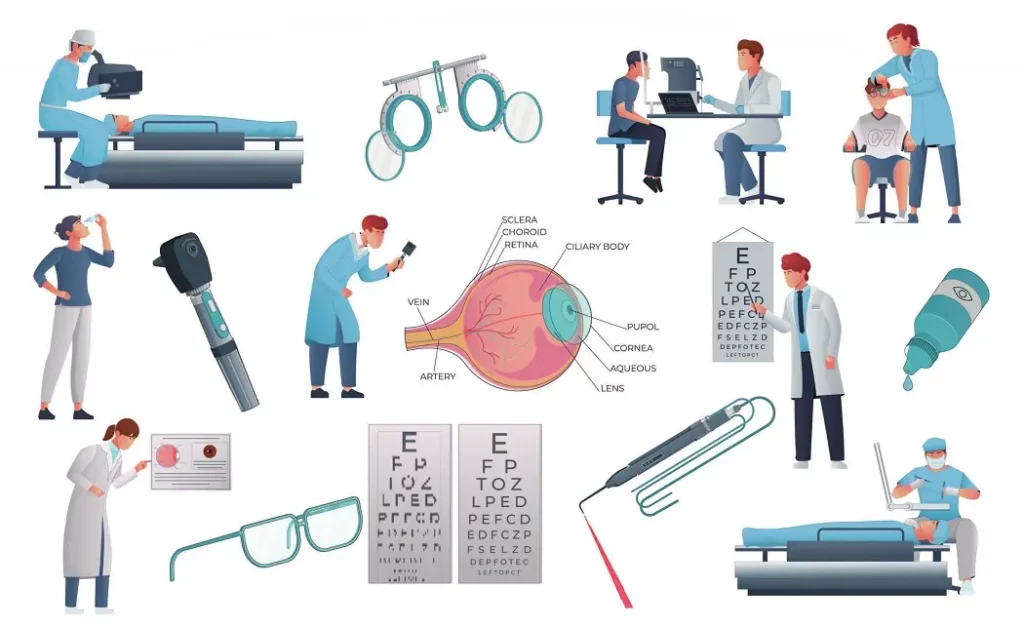All Categories
Featured
Healthy vision is a foundation of high quality of life, yet many individuals take too lightly the significance of nourishment in preserving eye health and wellness. A diet regimen abundant in particular nutrients can secure your eyes, reduce the risk of creating typical eye illness, and assistance general ocular feature. Let's discover how nourishment impacts your vision and the crucial nutrients you need to consist of in your everyday dishes.
Important Nutrients for Eye Health
Vitamin A. Known for its function in protecting vision, vitamin A is crucial for preserving a healthy and balanced cornea and making it possible for low-light vision. Deficiency in vitamin A can result in night blindness and various other serious eye problems. Outstanding resources include carrots, sweet potatoes, and dark leafy environment-friendlies.
Lutein and Zeaxanthin. Located in high concentrations in the retina, these anti-oxidants secure against damages triggered by blue light and oxidative anxiety. Consuming foods like spinach, kale, broccoli, and eggs can help maintain your eyes healthy and balanced.
Omega-3 Fat. Omega-3s are important for the wellness of the retina and can aid minimize signs and symptoms of completely dry eye syndrome. Consist of fatty fish such as salmon, tuna, and mackerel in your diet regimen, or choose for plant-based resources like chia seeds and walnuts.
Vitamin C. A powerful antioxidant, vitamin C supports the health and wellness of blood vessels in the eyes and may minimize the threat of cataracts. Foods rich in vitamin C include oranges, strawberries, bell peppers, and tomatoes.
Vitamin E. This nutrient safeguards eye cells from oxidative damage. Integrate almonds, sunflower seeds, and avocados into your dishes to enhance vitamin E levels.
Zinc. Zinc plays a crucial duty in transferring vitamin A from the liver to the retina, assisting in the manufacturing of melanin, a protective pigment in the eyes. Foods such as oysters, beef, and strengthened cereals are exceptional resources.
![]()
Avoiding Eye Conditions Via Diet Plan
Macular Deterioration: Antioxidants like lutein, zeaxanthin, and vitamins C and E can aid reduce the development of age-related macular degeneration (AMD)
Cataracts: Ample consumption of vitamin C and various other anti-oxidants may postpone the onset or stop of cataracts.
![]()
Dry Eyes: Omega-3 fats help enhance tear quality and reduce dry eye signs.
Diabetic Retinopathy: A diet plan low in refined sugars and rich in whole foods can help take care of blood sugar levels, decreasing the threat of this problem in individuals with diabetic issues.
Practical Nutrition Tips
Expand Your Diet Regimen: Include a range of fruits, vegetables, lean healthy proteins, and whole grains to ensure you're obtaining a variety of nutrients.
Limitation Processed Foods: Decrease consumption of sugarcoated and undesirable fats, which can add to systemic health issues impacting your eyes.
Stay Hydrated: Correct hydration supports tear production and protects against eye dry skin.
Consider Supplements: If your diet regimen does not have specific nutrients, get in touch with a doctor regarding taking supplements for far better eye health and wellness.
Verdict
![]()
Great nutrition is a vital aspect of maintaining optimal eye wellness. By incorporating nutrient-dense foods right into your diet plan, you can decrease the risk of eye diseases and protect your vision for the long term.
Important Nutrients for Eye Health
Vitamin A. Known for its function in protecting vision, vitamin A is crucial for preserving a healthy and balanced cornea and making it possible for low-light vision. Deficiency in vitamin A can result in night blindness and various other serious eye problems. Outstanding resources include carrots, sweet potatoes, and dark leafy environment-friendlies.
Lutein and Zeaxanthin. Located in high concentrations in the retina, these anti-oxidants secure against damages triggered by blue light and oxidative anxiety. Consuming foods like spinach, kale, broccoli, and eggs can help maintain your eyes healthy and balanced.
Omega-3 Fat. Omega-3s are important for the wellness of the retina and can aid minimize signs and symptoms of completely dry eye syndrome. Consist of fatty fish such as salmon, tuna, and mackerel in your diet regimen, or choose for plant-based resources like chia seeds and walnuts.
Vitamin C. A powerful antioxidant, vitamin C supports the health and wellness of blood vessels in the eyes and may minimize the threat of cataracts. Foods rich in vitamin C include oranges, strawberries, bell peppers, and tomatoes.
Vitamin E. This nutrient safeguards eye cells from oxidative damage. Integrate almonds, sunflower seeds, and avocados into your dishes to enhance vitamin E levels.
Zinc. Zinc plays a crucial duty in transferring vitamin A from the liver to the retina, assisting in the manufacturing of melanin, a protective pigment in the eyes. Foods such as oysters, beef, and strengthened cereals are exceptional resources.

Avoiding Eye Conditions Via Diet Plan
Macular Deterioration: Antioxidants like lutein, zeaxanthin, and vitamins C and E can aid reduce the development of age-related macular degeneration (AMD)
Cataracts: Ample consumption of vitamin C and various other anti-oxidants may postpone the onset or stop of cataracts.

Dry Eyes: Omega-3 fats help enhance tear quality and reduce dry eye signs.
Diabetic Retinopathy: A diet plan low in refined sugars and rich in whole foods can help take care of blood sugar levels, decreasing the threat of this problem in individuals with diabetic issues.
Practical Nutrition Tips
Expand Your Diet Regimen: Include a range of fruits, vegetables, lean healthy proteins, and whole grains to ensure you're obtaining a variety of nutrients.
Limitation Processed Foods: Decrease consumption of sugarcoated and undesirable fats, which can add to systemic health issues impacting your eyes.
Stay Hydrated: Correct hydration supports tear production and protects against eye dry skin.
Consider Supplements: If your diet regimen does not have specific nutrients, get in touch with a doctor regarding taking supplements for far better eye health and wellness.
Verdict

Great nutrition is a vital aspect of maintaining optimal eye wellness. By incorporating nutrient-dense foods right into your diet plan, you can decrease the risk of eye diseases and protect your vision for the long term.
Latest Posts
Business Roofing Solutions by Weathercraft Business
Published Apr 18, 25
1 min read
Digging In at Deauville Inn
Published Apr 17, 25
1 min read
NAPA AutoCare Certified: Rely on Montclare Auto Repair for Top-Tier Repairs
Published Apr 17, 25
2 min read